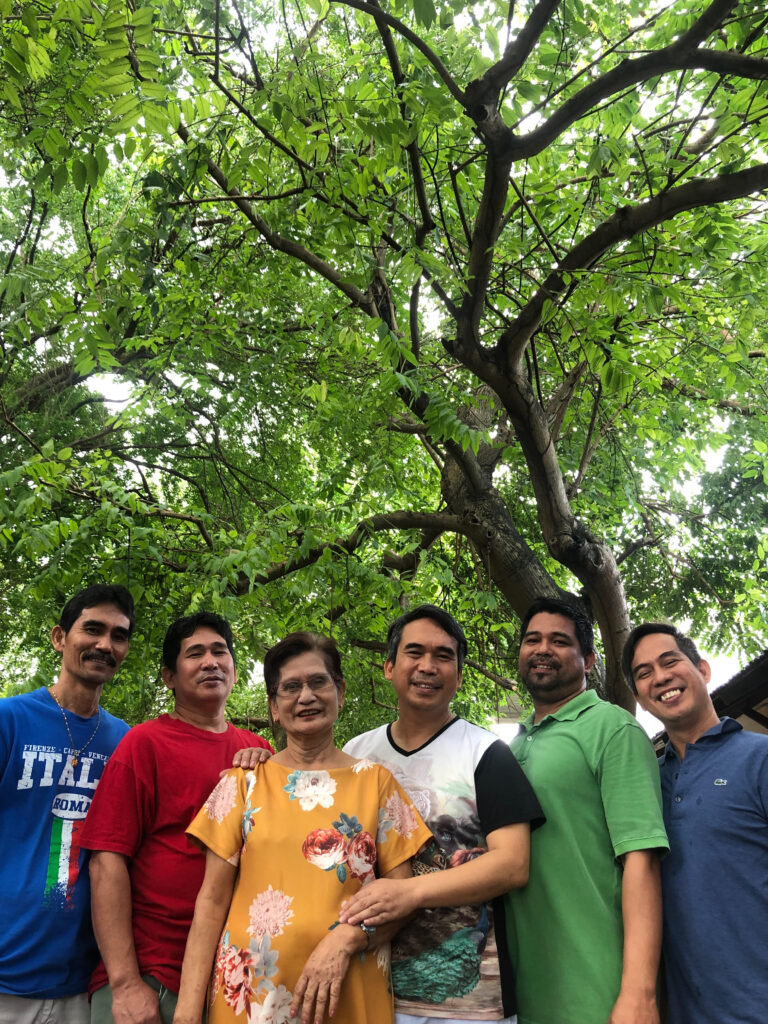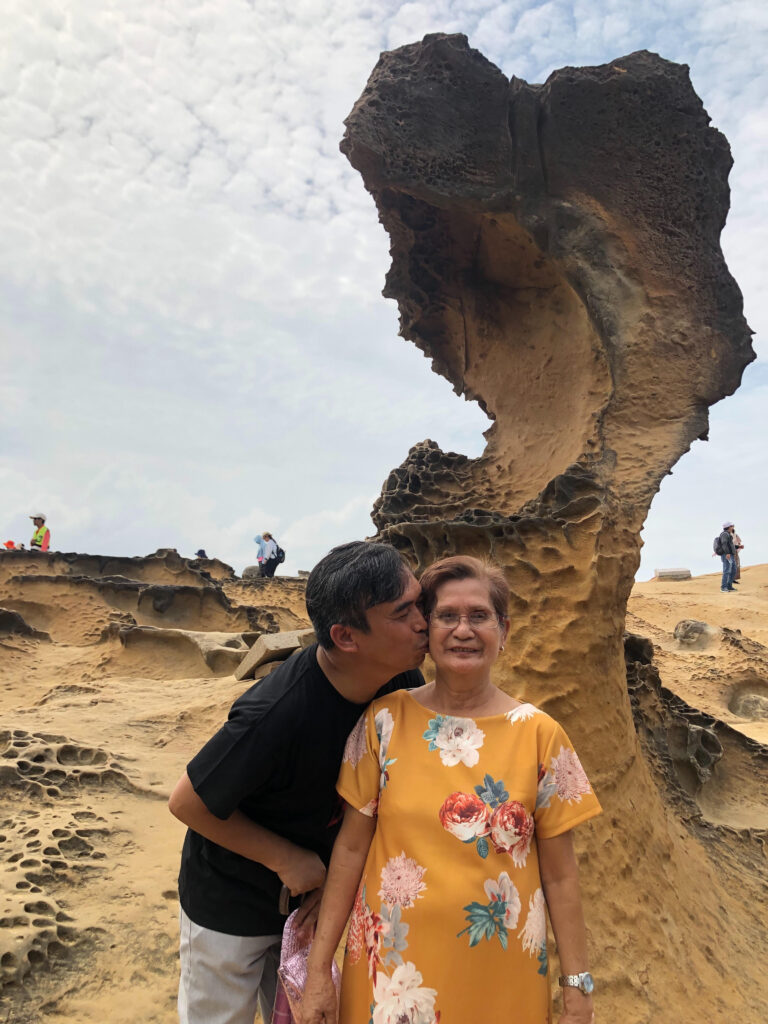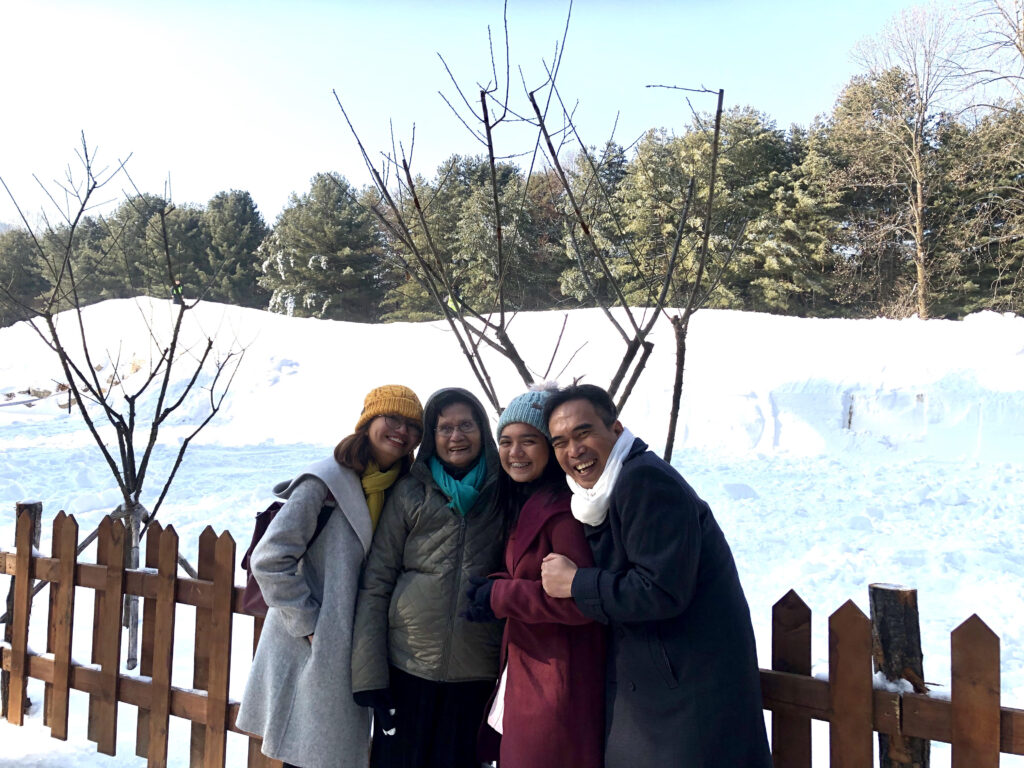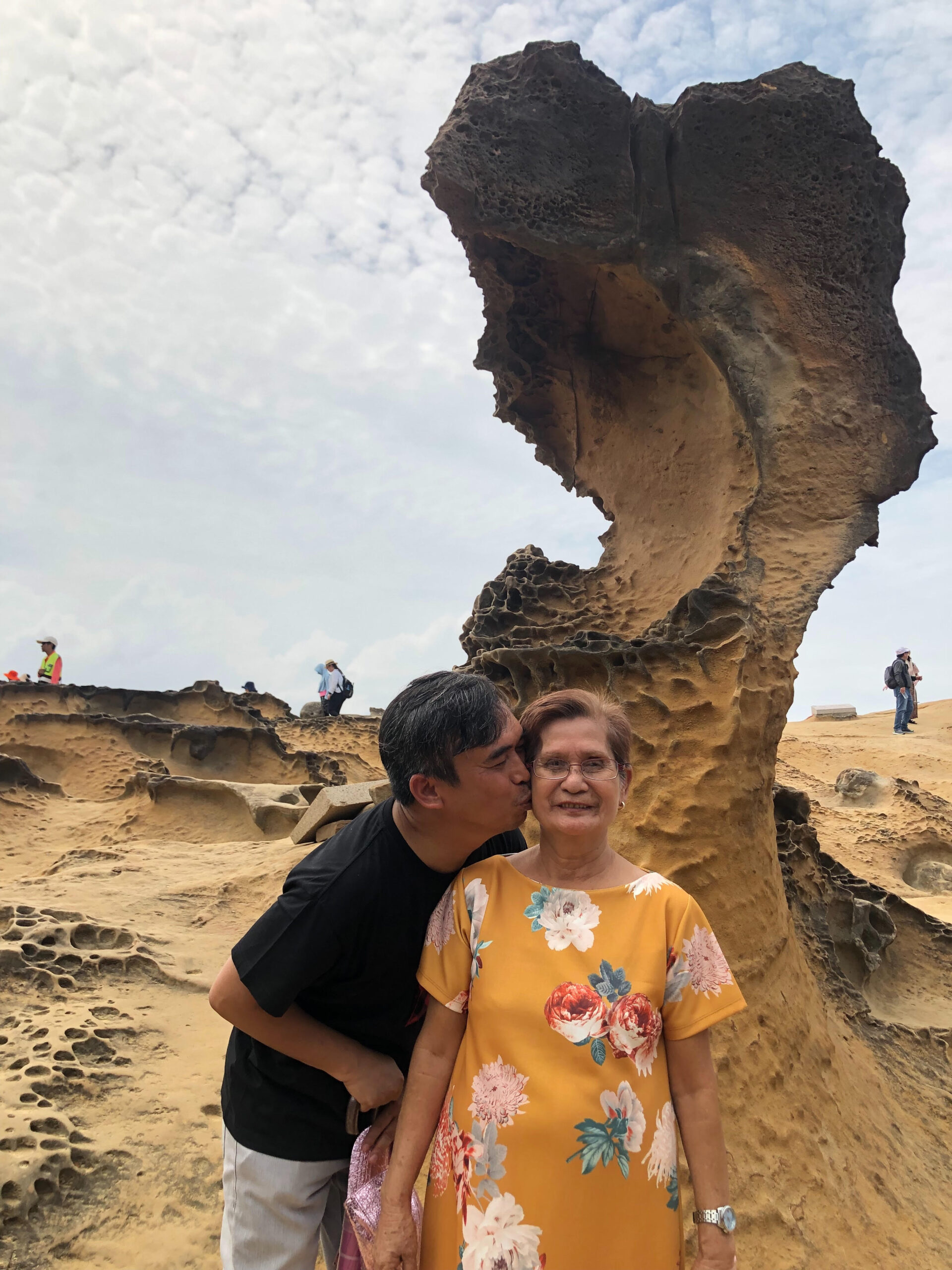By Bum D. Tenorio Jr.
While on a hammock under the himbaba-o tree at home in Gulod, a coastal barrio in Cabuyao, Laguna, I was doing the now normal WFH when something wet and warm dropped on my shoulder.
“Swerte yan! Magkakapera ka! (That’s lucky. You’ll have money)” my mother said. She was seated on a monobloc chair across me. She handed me a clean rug to wipe the bird dropping on my shirt.

“Kahit mga kalapati, na-miss ka (even the pigeons missed you),” she continued. “Welcome home.”
I laughed my way to the shower. The pigeons perched on the himbaba-o tree also flew to the nearby camachile tree. I left my mother in our backyard. She was laughing.

If the pigeons, chickens, roosters, ducks, lovebirds and turkeys in our backyard missed me, how much more my mother? I was away from home for 51 days because of the lockdown. (Truth is, ever since I worked in Manila, I have been far away from home for far too long – 25 years. Save for the weekends, I have not been home for a long while. My mother was 50 when I first settled in Manila. She’s now 75–the years that I am away from her every day I only trace on the creases on her face. I have lived longer in Manila than in Gulod.)
My brothers talked to me to come home from Makati to Gulod because last Monday she was having excruciating pain caused by her tendinitis in the back. It was so debilitating she thought she would die. She didn’t want to be brought to the hospital for fear of contracting the virus.
But yesterday she was OK – from morning till night. No pain. Today, too. Her meds must be working. Salamat sa Diyos.
The last thing I want to see is pain in my mother’s eyes. If it were only possible to half her pain or even get them all, I would be willing to sacrifice my own comfort. My mother was my enabler when I was a kid. When times were tough and the food on the table was scarce, my mother taught me and my four brothers to dream.

Dream. So my brothers and I imagined there were hotdogs on our plates while savoring their aroma from the neighbor’s kitchen.
Dream. So we were taught not to be ashamed of our life, of our past.
Dream. So we learned to live within our means. What we couldn’t afford, we did not force ourselves to acquire.
Dream. So we became grateful for every act of kindness shown our way. “Salamat po” was customary every time we would fetch water from the deep well of our neighbor. And when one neighbor did not allow us to watch “Gulong ng Palad” from the TV in their house, we still said thank you for the days we enjoyed the teledrama in their home.
Dream. So we knew there was comfort in simplicity. We lived in hand-me-downs. (And to this day, I am not comfortable tying my shoelace because there was a time I would share one pair of rubber shoes with my Kuya Gaddie. After he used the shoes, and in my hurry not to be late for school, I would leave the house wearing the same shoes with untied shoelace.)
Dream. So we learned to tell the truth always. We learned to be responsible for our every action. We learned to return what we borrowed–a toy or a handful of salt.
Dream. So we learned to appreciate kundiman and harana music as our lullaby. In want, we were filled with the lilting voice of our mother. She and Tatay would always serenade each other in the rice field, at home, on nights when only the kerosene lamp would guide us in the night.
Dream. So we were taught early on not to steal. “Hindi bale’ng mahirap, huwag lamang magnanakaw.” The cardinal rule of my father.
Dream. So we studied hard. And when dreaming was not enough, my three brothers gave up their dreams to finish college because of scarcity and worked as factory workers so my youngest brother and I could pursue our dreams.
Dream. So we learned that no one stay impoverished when one had dreams.
Last night, while huddled in the veranda of our humble home–while hoping and praying for the ruthless coronavirus to leave all of us in peace–my mother and I dreamed again as we watched the full moon in between the branches of the narra tree in our garden. The fragrance of the yellow-orange blooms of the narra wafted in the air. Even in the dim of the night, the blooms managed to enchant us as many of them pirouetted down the ground.
She became animated listening to the kundiman songs of Ruben Tagalog and Larry Miranda from her iPad. She kept the volume low because it was already 9 p.m. The neighborhood started to eclipse into sepulchral silence by 8 p.m., the curfew time in the barrio brought about by the prolonged enhanced community quarantine.
She stared at the moon. “When you were still a kid,” she told me in the vernacular, “you used to extend both your arms to ask money from the moon. You would wake up with a five-centavo or 10-centavo coin under your pillow. Your father put it there.”
She added: “When you wake up, you would thank the moon for answering your prayers.”

Truth is, God answered many of my prayers, many of my mother’s prayers. What we have now is more than what we wished for. In the middle of the night, the pandemic notwithstanding, we counted our blessings. We looked back to the past with a grateful heart.
That night, we were joyful. There was mirth in our hearts. We laughed. The moon above us laughed with us. Even the pigeons, chickens and roosters perched on the himbaba-o tree seemed to laugh in their unusual crowing at night.
Amidst the trouble of the world, we were at peace.
Salamat sa Diyos.
(E-mail the author at bumbaki@yahoo.com. Happy Mother’s Day!)





